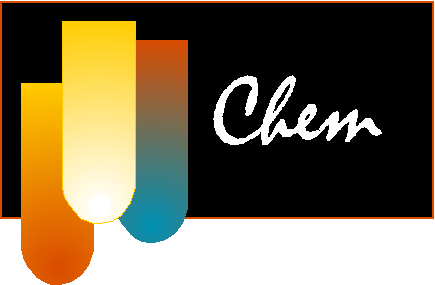
Spring 2001
 | Chemistry 116 Syllabus Spring 2001
|
To The Student:
Chemistry 116 is the laboratory course designed to accompany Chemistry 106, MOLECULAR SCIENCE FOR CITIZENS. In Chemistry 116 you will observe demonstrations, view videotapes, perform experiments, and present a simple chemical activity to your classmates. Through this laboratory course you should increase your conceptual understanding of the molecular world and gain confidence in your ability to use chemical explanations for some everyday occurrences. Many discussions in Chemistry 116 will build on topics discussed in Chemistry 106. Therefore, it will be essential that everyone registered for Chemistry 116 also be enrolled in Chemistry 106.
Required Materials:
Policy on Safety and Breakage
Before working in this laboratory course, every student must read the “Laboratory Safety” rules and agree in writing to abide by these rules. It is imperative for your safety that you and everyone around you strictly adhere to the safety rules. Failure to comply with the safety regulations (e.g., by not wearing eye protection at all times, by running an unauthorized experiment, or by removing chemicals or equipment from the lab) may result in dismissal from the course or deduction of points. In this course you will be utilizing equipment furnished by the Chemistry Department. It is your responsibility to properly maintain the equipment while it is in your care. If equipment that has been entrusted to you is not returned in satisfactory condition, you will be held responsible for it.
Grading and Absence Policy
Absences:The major components of this course are the lectures and demonstrations provided by your instructor, the videotapes that will be played, the experiments that you perform, the poster you present, and quizzes. Often it is not possible to recreate a laboratory environment or discussion. Therefore, credit will be deducted or extra work assigned if you are absent, arrive late or leave before the class is dismissed. We know that conflicts do occur, but if those conflicts are excessive, your grade may suffer.
Reports: Before you leave each day, you will be required to submit a one page outline of that lab period's events, descriptions of the videos and demos you observed, and all data you collected. (You keep the carbon copy). Some weeks you will also need to complete and return worksheets and answers to questions that are provided and related to that day's experiments and/or demonstrations.
Grading:Your grade will be based upon four factors: reports (neatness, completeness, correct answers, etc.), classroom participation (discussions, materials and ideas contributed, adherence to safety rules, etc.), demo presentation and quizzes.
Student Posters: Each student is required to prepare and present a poster during the semester. Details of what is expected, grading, etc., of these posters will be described in a separate handout.
(The following schedule may need to be modified from time-to-time to enable this course to more closely follow topics discussed in Chemistry 106.)
| Week | Dates | Activity |
| 1 | Jan 17 & 18 | Introductions, Video, Safety Rules and Safety Agreement |
| 2 | Jan 24 & 25 | Experiment #1 (Must wear proper attire and eye protection.) |
| 3 | Jan 31 & Feb 1 | T.A. Demos and Experiment #17 |
| 4 | Feb 7 & 8 | Video, T.A. Demos and Experiments #5 |
| 5 | Feb 14 & 15 | QUIZ, Video, T.A. Demos, and Experiment #6 |
| 6 | Feb 21 & 22 | T.A. Demos and Experiment #9 |
| 7 | Feb 28 & Mar 1 | T.A. Demos and Experiment #16 |
| 8 | Mar 7 & 8 | QUIZ , Video, T.A. Demos and Experiments #18 and #12. |
| 9 | Mar 21 & 22 | Video, T.A. Demos and Experiment #13 Poster topics due) |
| 10 | Mar 28 & 29 | Student Demos |
| 11 | Apr 4 & 5 | T.A. Demos and Experiment #21 |
| 12 | Apr 11 & 12 | QUIZ, Video, T.A. Demos and Experiment #25 |
| 13 | Apr 18 & 19 | Experiment #27 (Report for #27 is due before you leave the lab.) Presentation of Posters |
| 14 | April 25 & 26 | Presentation of Posters and WRITTEN FINAL |